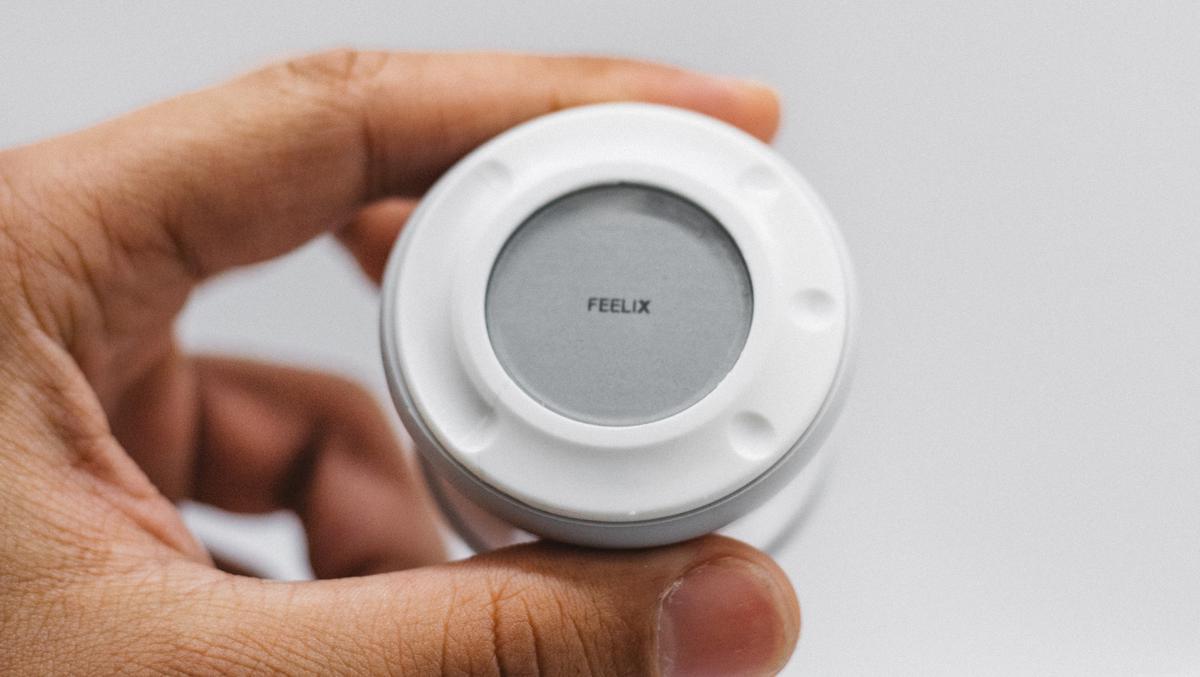<< Back
Profiles in Innovation: 9 Startups Compete at MedTech Accelerator’s Selection Day

February 17, 2022
The Hartford-based MedTech Accelerator team entertained pitches about new health services and devices Feb. 16 in a live-streamed, interactive presentations from nine startup companies eager to be chosen for the program’s Health Cohort.
Representatives of the nine companies, culled from a field of 30 applicants from across the country, participated in the Accelerator’s first Selection Day, presenting their products or services and fielding questions from judges like Dr. Barry Stein, Vice President and Chief Innovation Officer at Hartford HealthCare (HHC).
These companies have bold ideas that can help with diabetes management and better nutrition, prenatal care and social care management. They are using data, technology and community outreach to advance health equity — and create healthier, more vibrant and better-supported communities.
Five will be chosen for the cohort that starts collaborating with MedTech Accelerator partners in March. They will be mentored and supported through the HHC Office of Innovation.
“Innovation and its positive impact on the economy has never been more important,” Dr. Stein said. “To remain competitive, it’s important for us to be able to change.”
The connecting thread between all presentations was improving health equity, with each company offering solutions designed to improve the health of historically underserved populations by identifying social determinants of health, bridging various obstacles to quality care and meeting people with health needs where they are most comfortable.
The presentations were:
Bloomlife
Noting that 20 percent of pregnant women are considered high risk, and access to quality prenatal care is disproportionate by race and economic status, the company offers a wearable device that assesses fetal health at home, which is ideal for women who struggle to go into the doctor’s office weekly for recommended prenatal monitoring visits. The practice would also be cost-effective for providers. Using data analytics, the device assesses fetal health and transmits information to the provider. Future plans would address the underlying conditions causing the woman to be at-risk, such as gestational diabetes.
Sonavi Labs
The company touts Feelix, pictured above, as the first digital stethoscope to assess and track respiratory health for people with such diseases as asthma, chronic obstructive pulmonary disease and pneumonia. The device listens, analyzes and transmits lung sounds to a provider, decreasing the need for in-office visits. In trials, Feelix has been proved 95 percent accurate in identifying breathing abnormalities, and more accurate than a spirometer or a pulse oximeter. Sonavi’s representative said they would like to make Feelix “as ubiquitous as a thermometer.”
Playback Health
As many healthcare providers are overwhelmed, this company created a tool to record, save and replay complete care visits to improve patient-provider communications, the patient experience and the patient-provider bond. Information would be stored in the virtual Cloud, shared with family and used as a connection during patient care transitions. At Lenox Hill Hospital in New York City, the service reportedly proved key during the pandemic when people could not accompany each other to office visits and hospital visiting hours were suspended. It promises higher patient adherence to care instructions and lower hospital readmission rates.
RX Live
Because providers often struggle to meet their patient’s needs in a brief appointment, RX Live suggests layering in another expert to ensure medication adherence: the pharmacist. Their solution is integrating a pharmacist or a population-based pharmacy program to provide cost-effective medication management. Patients enroll in the program, which is then linked to their electronic medical record. The results, according to their preliminary trials, are lower hospitalizations and readmissions, and less money spent on medication per patient.
NourishedRX
Food insecurity and nutrition is a concern for many and this company proposes a unique, personalized solution that uses electronic support to “bring food knowledge to the most at-risk populations” and “bridge the gap of knowledge and access.” The focus would be individualized, identifying the needs of each participant – whether an elderly person with heart disease or a pregnant woman – and tailoring information and help accessing nutritious foods in a way that supports life-long dietary changes.
Viora Health
Noting that 70 percent of economically challenged people do not follow recommended treatment, Viora developed a personalized engagement solution in the form of an app. For each participant, the app identifies specific barriers to good health, creates a personalized plan and provides automatic, culturally-competent support. Trials have successfully lowered participants’ cholesterol levels and weight.
Gaja Health
A graduate of the Anthem regional incubator program, this company developed software that uses targeted healthcare to address the needs of a population of Medicaid patients it dubs the “rising risk.” In California, the company’s work has focused on the food insecure, marginally unhoused and formerly incarcerated. The goal is to ensure whole-person healthcare while addressing hunger, unemployment and homelessness.
Care Advisors
Social service referral tools, the company representative said, are expensive and only 2 percent successful in matching people with the services they need. Care Advisors proposed a social care management system that would create ecosystems to decrease avoidable delays in care. The system’s equitable information exchange is automated and linked to various services, including utilities. The cost is shared with the healthcare provider, but promises to stratify risk and follow through with referrals to improve overall health, build community partnerships and even address the opioid crisis.
Gabbi
With 26 percent of women diagnosed with breast cancer before the age of 50, and 85 percent of those diagnosed at an advanced, less treatable stage, Gabbi addresses diagnosis delays by arming women with health information. The app’s proprietary risk assessment model computes a woman’s personal information and determines her risk for breast cancer. In addition, it develops a personalized action plan, and orders needed tests and diagnostic screenings as her “go-to breast specialist.” This, the company representative said, improves patient outcomes.